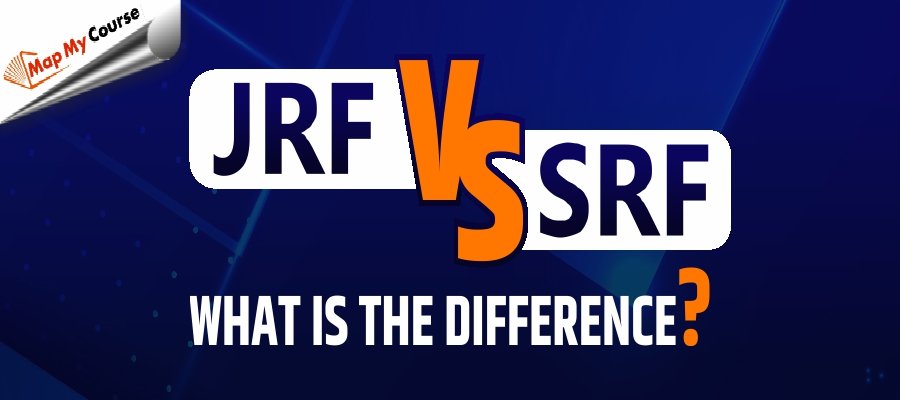If you are preparing for CSIR NET or UGC NET, it’s important to know about the difference between JRF and SRF, at the same time both are fellowship support your PhD degree, still, there are certain differences you need to know to strengthen your preparation of the exam and grab opportunities in future if you are thinking about appearing in the NET exam.
Full Form Of JRF
Full Form Of SRF
What Is JRF
What Is SRF
As it is the advanced stage of your research journey. It comes with a higher stipend and is designed to support you as you work on completing your thesis or publishing your findings. In short, SRF is awarded to researchers who are well into their projects and are ready to dive deeper into their work.
Read About:- CSIR SRF Recruitment
JRF vs SRF: Overview
Criteria | JRF (Junior Research Fellowship) | SRF (Senior Research Fellowship) |
Stage | Beginning phase of research. | Advanced phase of research. |
Purpose | To support new researchers for their Ph.D. | To assist experienced researchers finalizing their work. |
Eligibility |
| Complete 2 years as a JRF with good progress. |
Stipend | ₹37,000 + HRA | ₹42,000 + HRA |
Tenure | Up to 2 years. | Additional 3 years (after JRF). |
Awarded by | UGC and CSIR | UGC and CSIR, individual Institutions engaged in research activities. |
JRF vs SRF: Eligibility Criteria
Eligibility Criteria For JRF
- Candidates need a postgraduate degree with a minimum of 55% marks.
- Candidates need to qualify for competitive exams like UGC NET and CSIR NET to secure JRF
- To get JRF, the upper limit is usually 28 years for CSIR NET and 30 years for UGC NET. However, there is a relaxation of 5 years for reserved category candidates.
Eligibility Criteria For SRF
- Candidates needs to complete 2 years as a JRF with satisfactory progress in their research work.
- No specific age limit exists for SRF, making it more flexible than JRF in this regard.
JRF vs SRF: Benefits
Benefits Of JRF
Monthly Stipend: A JRF qualified candidate will get ₹37,000 to support financial needs during their initial research stages.
Duration: The JRF is valid for up to 2 years from the start of PhD, providing stable funding for starting of the program.
Research Support: The stipend is enough to covers essential expenses like lab fees, materials, and travel for data collection.
Access to Resources: A JRF candidate will get free access to university labs, libraries, and facilities.
Academic Recognition: Being a JRF fellow it boosts your confidence and credibility and opens doors to future academic opportunities.
Foundation for Research: JRF Helps to build a solid base for your research journey.
Benefits Of SRF
Higher Stipend than JRF: A JRF qualified candidate will get ₹42,000 + HRA, offering better financial aid during advanced research phases.
Extended Duration: After JRF, SRF provides an additional 3 years of funding, ensuring continuity in your research work.
Advanced Research Support: SRF provides funds for publishing research papers and attending national and international conferences.
Enhanced Career Prospects: The SRF can provide you preference for roles like assistant professor or postdoctoral researcher.
Recognition for Excellence: It highlights your capability as an experienced and advanced researcher.
Focus on Specialization: It Supports the final stages of your research, enabling deep and impactful findings.
Know About:- Difference Between CSIR NET And UGC NET
Conclusion
FAQs
Q.1 What is the main difference between JRF and SRF?
Ans. JRF (Junior Research Fellowship) is for candidates who have completed their master’s degree, while SRF (Senior Research Fellowship) is for candidates who have research experience and have completed their master’s degree.
Q.2 Can I apply for both JRF and SRF?
Ans. Yes, candidates can apply for both JRF and SRF, but they need to meet the eligibility criteria for each fellowship.
Q.3 How do I renew my JRF or SRF fellowship?
Ans. Candidates need to submit a progress report and meet the eligibility criteria to renew their JRF or SRF fellowship.
Q.4 Can I pursue a research project outside India with JRF or SRF?
Ans. Yes, JRF and SRF holders can pursue research projects outside India, but they need to get approval from the funding agency and meet the eligibility criteria.
Q.5 How many times can I attempt the JRF or SRF exam?
Ans. There is no limit on the number of attempts for JRF or SRF, but candidates need to meet the eligibility criteria each time.


















